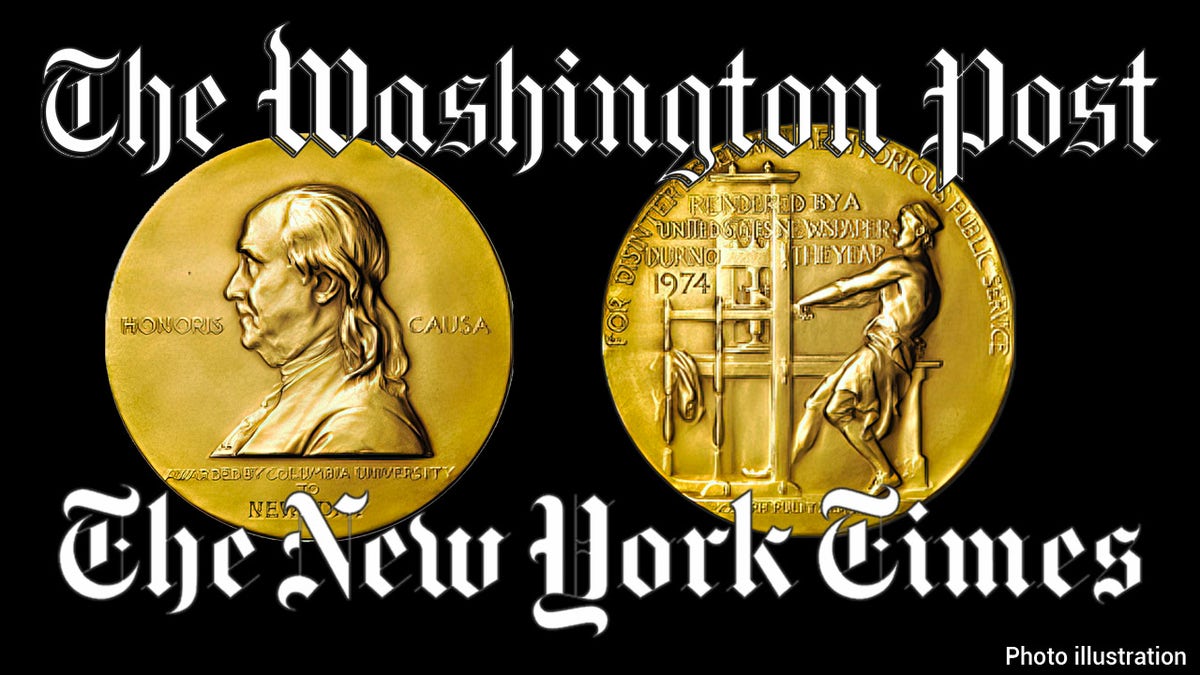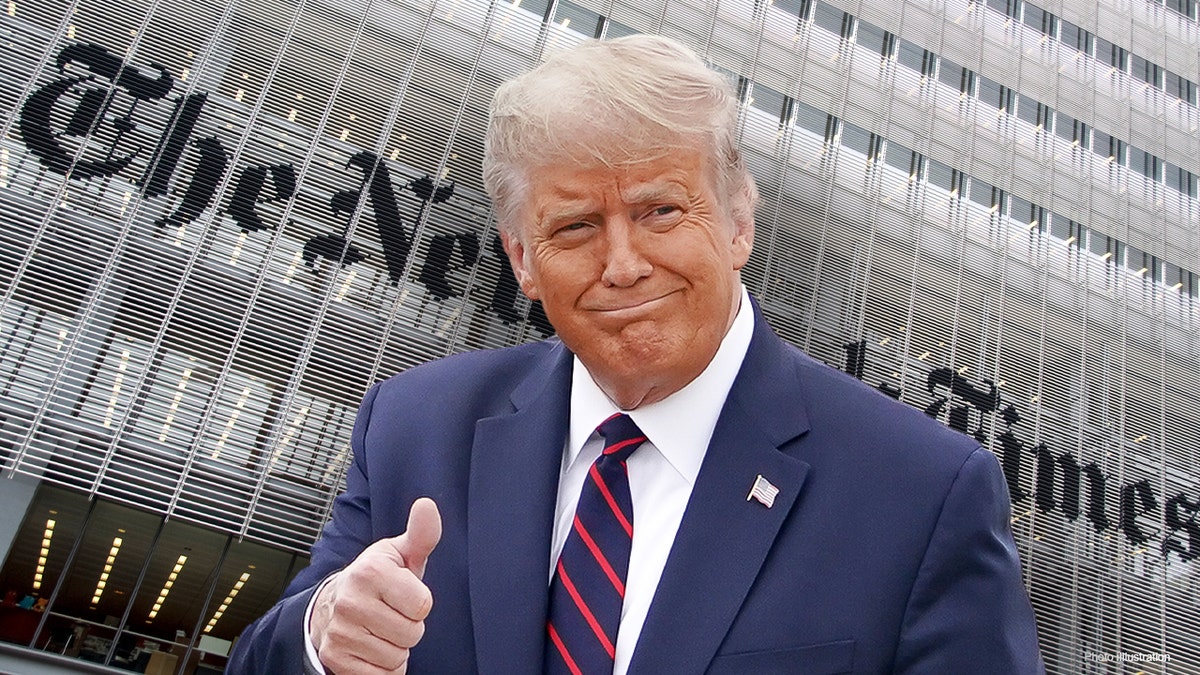Bob Woodward slams media coverage of now-debunked Steele dossier
Former CIA intelligence officer Buck Sexton joined 'Fox & Friends' to discuss the media's positioning and why he believes the strategy was calculated.
The Pulitzer committee was silent Friday following a retrospective in the Columbia Journalism Review that included scathing criticism of the newspapers awarded the prestigious prize for their Russiagate coverage.
Jeff Gerth's lengthy work for CJR this week covering the Donald Trump-Russia media saga delved into several key moments, including the awarding of Pulitzers to the New York Times and Washington Post for stories furthering a theory that didn't ultimately come to fruition, as well as the press's credulous handling of the now-discredited Steele dossier, omission or use of misleading facts and figures that obscured the media's preferred Russia collusion narrative, and panic over then-Attorney General Bill Barr's letter in 2019 summarizing the Robert Mueller investigation's findings.
Veteran journalist Bob Woodward was quoted on the record in the CJR piece blasting the media's coverage of the collusion story as a disservice to readers and viewers.
The Russia collusion saga, beginning in the 2016 election and all the way through the sprawling Mueller investigation that lasted from 2017 to 2019, dominated cable news and launched a media frenzy that boosted careers and newspaper and website subscribers, but may have caused lasting damage to the media's reputation as the narrative ultimately fizzled.
In 2018, New York Times and Washington Post reporters shared a Pulitzer Prize "for deeply sourced, relentlessly reported coverage in the public interest that dramatically furthered the nation’s understanding of Russian interference in the 2016 presidential election and its connections to the Trump campaign, the President-elect’s transition team and his eventual administration."

The Pulitzer Prize Board announced in 2022 that it stands by its 2018 National Reporting prizes given to The New York Times and Washington Post for coverage of alleged collusion between the Trump campaign and Russia. (Photo illustration)
Both the Times and the Post have cited their Pulitzers as vindication of their reporting, but the prizes came under criticism down the line as the Russiagate story and the idea of former President Trump being implicated in a diabolical conspiracy withered. In Gerth's report, the Times in particular came under fire for several journalistic sins, including leaving out context regarding Trump's comments about Russia playing into his firing of FBI Director James Comey, ignoring texts by former FBI agent Peter Strzok expressing doubt about the collusion narrative, and heavy reliance on anonymous, vaguely defined sources.
The Post also took criticism for some of its reporting methods.
"We are proud of our coverage of the investigation into Russia’s interference in the 2016 campaign, including our stories that were awarded the Pulitzer Prize for furthering the nation’s understanding of this consequential period," a Washington Post spokesperson told Fox News Digital. "We approached this line of coverage with care and a great sense of responsibility. On the few occasions in which new information emerged that caused us to reexamine past reporting, we did so forthrightly."
A New York Times spokesperson didn't respond to request for comment.
The Pulitzer committee announced in 2022 that it had investigated and determined subsequent information did not invalidate the credibility of the awarded stories. There were 20 listed on the Pulitzer site and many of them heavily relied on anonymous sources.
Trump filed a defamation suit against the Pulitzer committee last year for defending what he called the "debunked" stories, accusing the reporters of "lying" to the public.
Gerth, a Pulitzer winner himself while at the New York Times, was chagrined that no newsroom leaders spoke to him about their Russia coverage for his report, and most of the reporters he contacted wouldn't speak on the record. He added he was concerned by the "lack of transparency" from major media organizations in addition to violations of journalistic norms like not giving people criticized in articles a chance to respond in print and ignoring material facts to further narratives.

Former President Trump has long been irked that the New York Times was honored for coverage that his team has called "unworthy" of a Pulitzer Prize. (Getty Images / iStock)
"My main conclusion is that journalism’s primary missions, informing the public and holding powerful interests accountable, have been undermined by the erosion of journalistic norms and the media’s own lack of transparency about its work. This combination adds to people’s distrust about the media and exacerbates frayed political and social differences," he wrote.
CLICK HERE TO GET THE FOX NEWS APP
Gerth's work went largely ignored among the media outlets it criticized, although left-wing Mother Jones D.C. Bureau Chief David Corn, a fervent Russiagate proponent, lambasted his findings.
"His version of Russiagate echoes Trump’s distorted narrative and lets the man who assisted an attack on the United States off the hook," Corn wrote. "Trump may have been the victim of occasionally errant reporting. But he was no victim of a hoax or an off-the-rails media witch hunt."










































